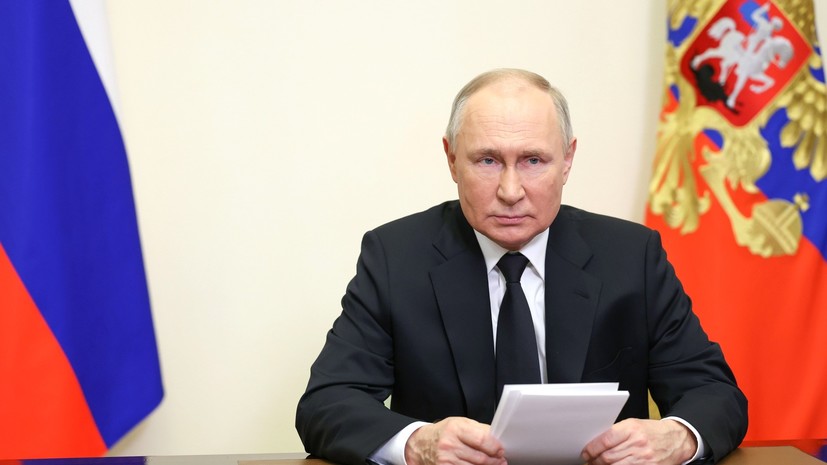On Monday, February 26, Russian President Vladimir Putin signed a law on a self-ban on loans for citizens.
The document was published on the official Internet portal of legal information.
As part of the initiative, every resident of the country will be able to set a limit in their credit history on the issuance of loans by banks and microfinance organizations (MFOs).
However, the ban will not apply to mortgages, car loans and educational loans within the framework of state support.
The idea of introducing a self-limitation mechanism for loans was proposed by the Central Bank of the country in mid-2022.
According to the regulator’s experts, the initiative will help citizens better protect themselves from criminals who issue loans in someone else’s name using stolen or fraudulently obtained personal data.
“We receive many complaints about abuses related to the issuance of loans or loans to a person.
Most often, he does not know about this at all when a loan is issued online.
It happens that a person, under the influence of social engineering methods, receives a loan himself and gives it to an attacker or puts it in someone else’s account - and the money is lost... To help people cope with this evil, proposals for legislation have been developed,” explained the member Board of Directors of the Central Bank Mikhail Mamuta.
To set a restriction, you only need to fill out a template application.
From March 1, 2025, this can be done electronically through the State Services portal, and from September 1, 2025, by personally contacting the MFC.
A prerequisite for receiving the service is the availability of a Taxpayer Identification Number (TIN).
“Information about self-ban... will be entered into the credit history within a day if the credit bureau received the corresponding application before 22:00 Moscow time, and if later, then on the next calendar day.
Thus, the ban begins to take effect the next day after information about it is included in the credit history of an individual,” says the materials on the State Duma website.
The conditions of restrictions may vary: by type of lender (bank or microfinance organization) and by the method of obtaining a loan (in the office or remotely).
At the same time, the service itself of establishing or lifting a self-ban on loans will be free and unlimited in the number of requests.
Please note that self-restriction can be canceled at any time.
To do this, you will also need to submit an application, but the ban itself will be lifted only a day after the relevant information is entered into the citizen’s credit history.
The Central Bank believes that such a waiting period will help people make a more informed decision.
“The methods (of fraudsters -
RT
)... are aimed at subordinating a person to the will of the criminal and leading him into a certain psychological delusion.
If there is a short cooling-off period, that is, a break point in communication, then, as a rule, the person has enough intelligence.
Or he will talk to his friends and acquaintances to understand that something wrong is happening.
We think that these innovations will help many people avoid the risks of fraud and make their lives calmer and safer,” emphasized Mikhail Mamuta.
RIA News
© Natalya Seliverstova
As Alexey Voylukov, vice-president of the Association of Russian Banks, told RT, today, when funds are stolen, credit institutions help clients collect documents for filing a police report and provide information to find scammers and return money.
In addition, many banks have services to insure against theft of funds from an account.
At the same time, financial institutions are now not required to provide the opportunity to refuse lending.
“Of course, individual banks can offer this kind of service.
However, such self-restrictions will only work within one specific organization,” Voylukov noted.
Against this background, the opportunity to completely prohibit the issuance of personal loans, approved by the country’s leadership, will really help to secure citizens’ money and create additional barriers for fraudsters, the specialist is sure.
A similar point of view is shared by Associate Professor of the Department of Statistics of the Russian Economic University.
G.V.
Plekhanova Olga Lebedinskaya.
“If a ban is established, a special mark will appear in the credit history, about which the Central Bank will have to notify all qualified credit history bureaus.
Banks, when checking your credit history and discovering such a record, will not be able to approve the loan and will be required to refuse.
If for some reason the loan was issued anyway, financial institutions will no longer be able to demand repayment of the debt from the client,” explained RT’s interlocutor.

